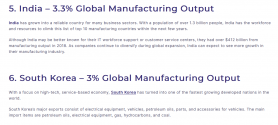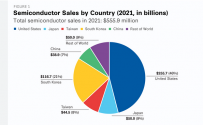China's GDP per capita took off really as a consequence of the adoption of the export-led development strategy made famous by Germany, Japan, and South Korea.
That is not "made famous" by them, but it is the most logical strategy used throughout the entire human history. Ancient China did that lol.
You can even see this in a time line graph as China and India stayed roughly similar in GDP per capita until the 1970s when Deng Xiaoping enacted capital reforms and his successors made China the "factory of the world."
Yeah, I know that. But Mao made all the right fundamental building blocks before that. Without him, none of that would have happened.
India failed to make those reforms, both because Indian governments at the time were not entirely convinced that it was the way to go, and because of entrenched interests in India being much harder to fight. After all, the CCP had crushed private interests and nationalized all the land. India never did.
India did 99% of the market reforms that Deng introduced over time.
What sets them apart is not those reforms, but the political system structure itself and the innate quality of the population.
Regarding natural resources, India had it better than China, so no worries there.
But my argument is not that India will suddenly make these reforms and fly off the wall; but that its own development strategy, though much slower than China's, could eventually make it competitive; while China's strategy, which follows the same basic principles as Germany's, Japan's, and South Korea's, will most likely run into the same demographic wall that stopped those countries from simply exponentially increasing their GDP until they've taken over the world.
Yeah, judging by the current data, if the Indian population increased by around 20 times, they could catch up? Are you trolling? Do you even read what is being presented to you or just repeating the same bullshit over and over again?
There is such a thing as diminishing returns in per capita productivity - and like other East Asian economies, China will reach them. India, by contrast, still has a long run way due to its demographics.
By the time China reaches those limits, India would need perhaps 20 billion people in order to be on par with China. That's how wide the gap in individual citizen productivity would have become objectively.
China currently has 5-6 times more productivity per capita higher than India, and if we follow SK, Japan, and Taiwan, current metrics, that number will eventually go into 10-20 times more category.
As for how I know that I know that because China follows the same or higher rates of GFCF, urbanization, tertiary gross enrollment ratio, focus on STEM, and rise in technological innovation, as those 3 countries did during similar growth development stages, and has the similar PISA scores and IQ scores. I can almost certainly guarantee you that number.





